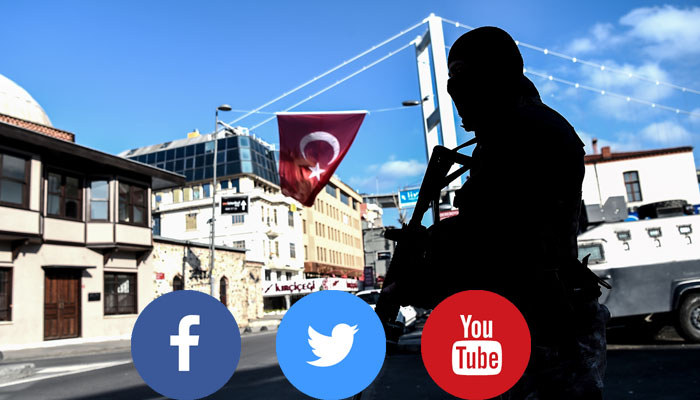Two prominent rights organizations have called on the Turkish government to end online censorship while urging technology firms to prioritize rights as Turkey holds critical presidential and parliamentary elections on Sunday.
“The Turkish government should end its crackdown on civil society and secure the right to freedom of expression and privacy especially in the run up to and during elections,” ARTICLE 19 and Human Rights Watch (HRW) said.
Voters in Turkey will head to the polls in a high-stakes election on May 14, 2023 amid concern that the government of President Recep Tayyip Erdoğan will exert considerable control over the digital ecosystem in an effort to undermine the outcome of the election, the rights groups said in a question and answer document released on Wednesday.
ARTICLE 19 and the HRW examined potential threats to Turkey’s online environment in the parliamentary and presidential elections in which President Erdoğan and his ruling Justice and Development Party (AKP) face a significant electoral challenge.
The document from the rights groups outlines how the government, which has a history of silencing dissenting opinions online, has amassed a vast arsenal of digital censorship tools, also detailing what additional steps social media platforms and messaging services should take to meet their human rights responsibilities in the election.
Political observers say Erdoğan is facing the most challenging election in his career, with surveys showing him running neck-and-neck or losing to Kemal Kılıçdaroğlu, the leader of the main opposition Republican People’s Party (CHP) and the presidential candidate of an opposition alliance of six parties.
“The Turkish government has accelerated its efforts to enforce censorship and tighten control over social media and independent online news sites ahead of this election,” said Deborah Brown, senior technology researcher at HRW.
“The vote will test whether voters in Turkey can rely on social media for independent news and to express their views on the election and its outcome, despite government efforts to put companies under its heel.”
Freedom House warned in March that thousands of websites are blocked in Turkey and that this censorship hinders voters’ ability to access accurate and diverse sources of information ahead of the vote.
ARTICLE 19 and HRW said the Turkish government should refrain from threatening or throttling social media platforms to prevent opposing views from circulating during the election.
Thousands of people including journalists face investigation, are prosecuted and sentenced in Turkey simply because exercising their freedom of expression in their social media posts.
The rights groups said social media platforms and messaging services should prioritize human rights over profits to respect the right of voters in Turkey to participate in a democratic election by resisting government pressure and putting in place contingency plans against throttling.
Under a controversial media law, which took effect last October, social media companies are required to share with authorities users’ information if they post content constituting crimes, including misleading information.
The companies are required to appoint Turkish representatives and face bandwidth being cut by up to 90 percent immediately after a court order should the representative fail to provide information to authorities.
Analysts and consultants say companies have global privacy standards they are unlikely to breach in Turkey as that could set dangerous precedents for other countries looking to exert control over social platforms.
“In October 2022, new amendments introduced a vague ‘public dissemination of misleading information’ offense along with an expanded toolkit of compliance measures to further the online repression campaign during the elections. Social media platforms that reject government demands for user data or content removal could face hefty fines and bandwidth restrictions that would leave their platforms effectively unusable in Turkey,” the rights groups said.
In recent years the government has stepped up its prosecutions of journalists, political opponents and others for criticizing the president and the government online or even just for sharing or liking critical articles on social media. It frequently blocks websites and orders removal of content that voices opposing views and has a record of blocking access to popular social media networks at times of political unrest or when it anticipates criticism, as it did in the aftermath of the devastating February 2023 earthquakes.
In a move that obstructed search and rescue efforts, the Turkish government restricted Twitter on multiple internet providers following the deadly earthquakes that killed more than 50,000 people on Feb. 6 in south and southeast Turkey.
At the time of the restriction, people including those trapped under the rubble were tweeting their locations to ask for help. In some cases, search and rescue teams were directed to the flattened buildings based on information obtained from Twitter users.

